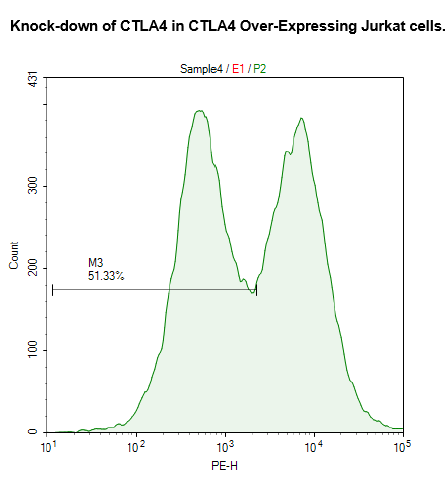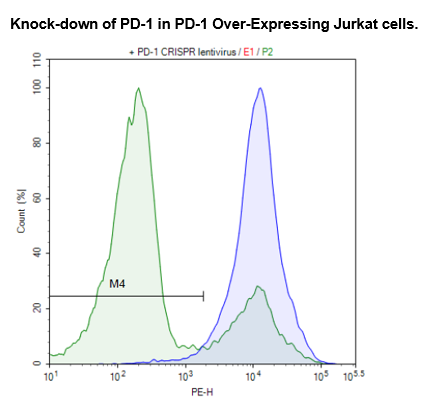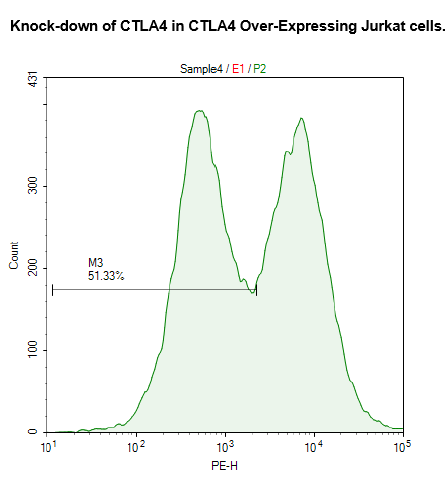
CTLA4 CRISPR/Cas9 Lentivirus (Integrating)
78054
Product group Molecular Biology
Overview
- SupplierBPS Bioscience
- Product NameCTLA4 CRISPR/Cas9 Lentivirus (Integrating)
- Delivery Days Customer7
- CertificationResearch Use Only
- Hazard Informationun3373
- Scientific DescriptionCTLA4 (Cytotoxic T-Lymphocyte Associated Protein), also known as CD152, is a protein receptor that functions as an immune checkpoint. It is expressed by activated T-cells and transmits an inhibitory signal to T-cells. CTLA4 is homologous to the T-cell co-stimulatory protein CD28, and both molecules bind to CD80 (B7-1) and CD86 (B7-2) on antigen-presenting cells. CTLA4 binds CD80 and CD86 with greater affinity and avidity than CD28, thus enabling it to out-compete CD28 for its ligands and act as an off switch when bound to CD80 or CD86. CTLA4 is an important immunotherapy target for the treatment of cancer and autoimmune diseases. The CTLA4 CRISPR Lentiviruses are replication incompetent, HIV-based VSV-G pseudo-typed lentiviral particles that are ready to be transduced into almost all types of mammalian cells, including primary and non-dividing cells. The particles contain a CRISPR/Cas9 gene driven by an EF1a promoter, along with 4 sgRNA (single guide RNA) targeting human CTLA4, GenBank Accession #NM_005214, driven by a U6 promoter (Figures 1 and 2). The integrating lentivirus integrates randomly into the cells genome to express both the Cas9 and sgRNA. Puromycin selection increases the knockout efficiency by forcing high expression levels of both Cas9 and the sgRNA, and can be used with the integrating lentivirus to quickly and easily achieve high knockdown efficiencies in a cell pool. Efficiencies also depend on the cell type and the gene of interest.
- Storage Instruction-80°C
- UNSPSC41115812
- SpeciesVirus




